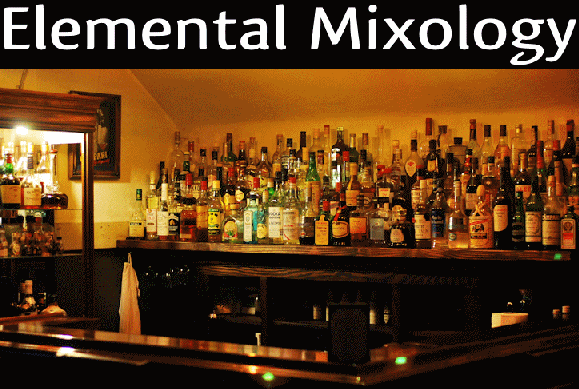Here is another student-requested post...
An important factor is spirits is aging, or the lack thereof.
RAW SPIRITS - A spirit that has not been aged, diluted or otherwise processed after distillation can be said to be 'raw'. Raw spirits are not usually sold. One virtually-raw spirit that is available in most states of the U.S.A. is 190 proof grain spirit (Everclear). In a few states this product is illegal, and a 151 proof version is found on liquor store shelves.
NEW SPIRITS - A spirit that has not been barrel-aged, but has been diluted to salable proof, can be said to be 'new'.
Some spirits commonly sold new are:
Pisco brandy (but not other grape wine brandies)
Grappa
Wasser (kirschwasser, birnewasser, marillenwasser, etc.)
Eau de vie (de poire, de mirabelle, etc.)
Cachaça
Mezcal (including that from Tequila) - blanco/plata ['white'/'silver']
Geist (himbeergeist, wacholderbeerengeist, etc.)
Oude genever - friesche ['fresh']
Gin
Vodka
A spirit that has been stored in wood for any amount of time can be said to have been aged. Spirits that have been aged for minimal periods of time can be called 'young'. Spirits aged to full maturity can be called 'old'. The appropriate amount of time to reach full maturity varies by type of spirit. Spirits aged beyond full maturity can be called 'extra-old'.
YOUNG SPIRITS - A spirit that has been minimally barrel-aged (for that type of spirit) can be said to be 'young'.
Some spirits commonly sold young are:
Rum (traditional, light, or semi-light) - 'white' [colorless] - 1 year or older
Mezcal (including that from Tequila) - reposado ['reposed'] - 2 months or older
[Note that young rums are aged in new barrels and are without color. Virtually all rum-producing countries legally require at least one year of aging before sale. Such laws probably reflect more interest in combating moonshine rum than in ensuring quality.
OLD SPIRITS - A spirit that has been barrel-aged to full maturity (for that type of spirit) can be said to be 'old'.
Some spirits commonly sold old are:
Brandy (including that from Armagnac or Cognac) - v.s. & v.s.o.p. - 2 years or older
Whisk(e)y (any type) - often without specific age indication - 2 years or older
Rum (traditional or light) - often without specific age indication - 3 years or older
Agricole rhum - often without specific age indication - 3 years or older
Mezcal (including that from Tequila) - añejo ['yearling'] - 1 year or older
[Note that 'gold' or 'special' rum is usually young rum blended with a small amount of old rum and then artificially colored so that the entire product will look old.]
[Note that 'gold' Tequila mezcal is usually new Tequila mezcal that has been artificially colored to look old.]
EXTRA-OLD SPIRITS - A spirit that has been barrel-aged beyond the normal point of full maturity (for that type of spirit) can be said to be extra-old.
Some spirits commonly sold extra-old are:
Brandy (including that from Armagnac or Cognac) - x.o. - 5-6 years or older
Whisk(e)y (any type) - age given in years - no specific threshold, but noticeably beyond old
Rum (traditional or light) - age given in years - no specific threshold, but noticeably beyond old
Agricole rhum - age given in years, or x.o. - no specific threshold, but noticeably beyond old
Subscribe to:
Post Comments (Atom)


Useful, thanks!
ReplyDeleteA linguistic point: The Dutch word friesche (or more recently fries) does not mean "fresh" but Frisian/from Friesland - the northwestern province of the Netherlands, known as a farming district and therefore associated with grain production (although the Netherlands hasn't been self-sufficient in grain since at least the time when genever was invented).
http://en.wikipedia.org/wiki/Friesland
Fresh in Dutch is "vers."